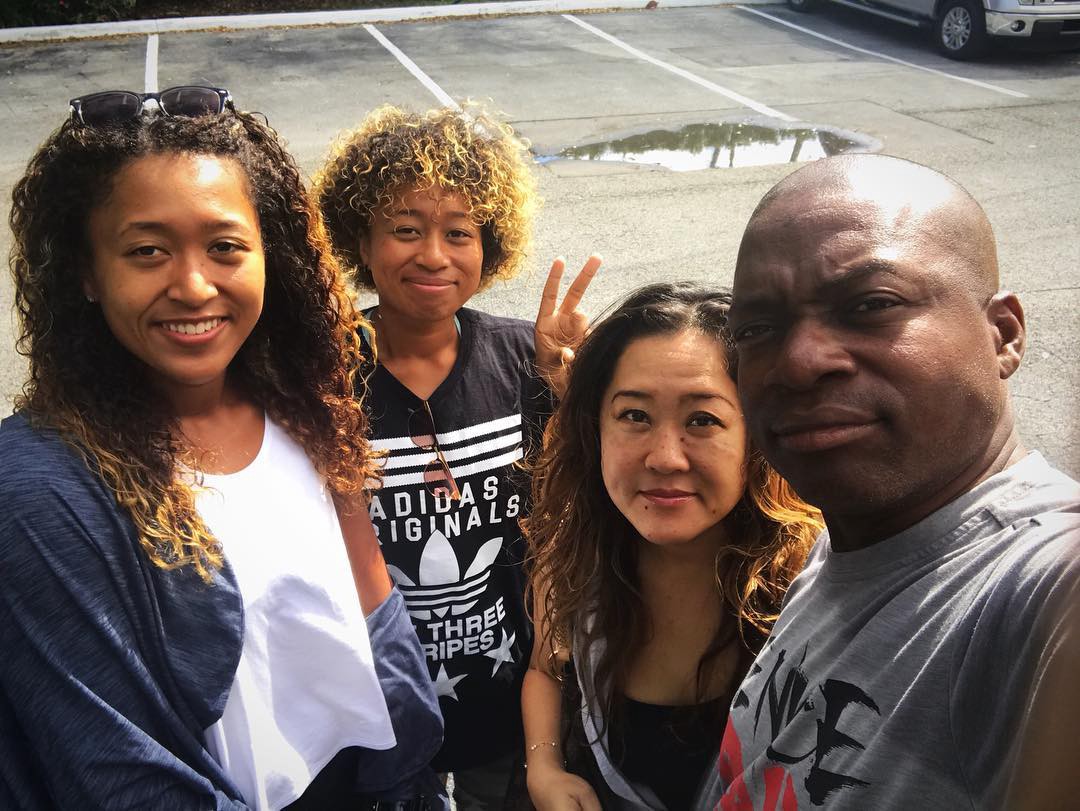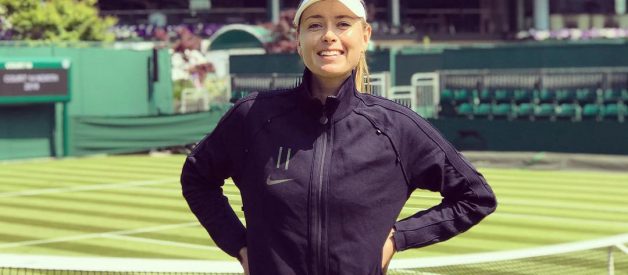Why is bilingualism a prerequisite for mixed race people?
 Naomi Osaka, as posted on her Instagram account, March 18, 2018
Naomi Osaka, as posted on her Instagram account, March 18, 2018
In a recent interview, Japanese tennis player Naomi Osaka made headlines for declining to speak Japanese when asked ? an interview that took place right after Osaka won her second Gram Slam title at the 2019 Australian Open and became the first Asian player to be ranked World ?1.
Rather, it is headline news that Osaka spoke English when asked to speak Japanese because Osaka is biracial. Born in Japan to a Japanese mother and Haitian father, Osaka is no stranger to critical scrutiny regarding her racial identity.
When asked by a reporter to give one word, in Japanese, about how she felt following her win, Osaka politely states, ?I?m going to say it in English,? before answering the question. This warranted headlines such as, Naomi Osaka shuts down reporter who asked her to speak in Japanese following Australian Open win.
In most cases, this would not be headline worthy. However, in Osaka?s case, the interaction speaks to a larger topic: the validity of Osaka?s Japanese-ness.
While Osaka plays for Japan, her mixed race and childhood in America has attracted many people to question her Japanese ethnicity. Legally, Osaka possesses Japanese citizenship, making her Japanese nationality indisputable. Similarly, as her mother is Japanese, Osaka is ethnically Japanese and racially Asian. In spite of this, you?ll find the Internet littered with articles discussing just how Japanese Osaka truly is.
Literally.
One article, published in the Japan Times, is titled, How Japanese is Naomi Osaka? Written by Kuni Miyake, the article lists the author?s arguments for Osaka being Japanese and scrutinizes her character and behaviors ? as if these qualities somehow add up to give Osaka a majority percentage Japanese. Miyake pulls these characteristics from, presumably, a Japanese archetype, explaining that Osaka possesses ?modesty, politeness, honesty and humility. These make Osaka truly represent Japan although she is still trying to become fluent in her mother?s native language.?
What?
One can only infer, then, that to be Japanese, one must be modest, polite, honest, and humble. While it seems too general to characterize an entire nation and ethnicity in four glowing character traits, it apparently qualifies Osaka as truly Japanese and compensates for her not being fluent in the Japanese language.
The article also considers that despite a) being born in Japan, b) having Japanese citizenship, and c) playing for Japan, Osaka has lived in America since she was three years old and the Japanese Tennis Association reportedly offered Osaka more financial support than the United States Tennis Association.
Interestingly, Russian tennis player Maria Sharapova, who has also been ranked World ?1, was born in the Russian SFSR before moving to America at the age of seven. She has lived and trained in America ever since ? and yet, no one seems to question ?how? Russian she truly is.
 Maria Sharapova (undoubtedly Russian), as posted on her Instagram account, June 28, 2018
Maria Sharapova (undoubtedly Russian), as posted on her Instagram account, June 28, 2018
How Japanese is Naomi Osaka? is currently the second search result, following Osaka?s Wikipedia page, when I google, ?Is Naomi Osaka Japanese?? However, when I google, ?Is Maria Sharapova Russian?? I find Sharapova?s Wikipedia page, followed by a CNBC article explaining why Sharapova won?t be trading her Russian citizenship for American citizenship.
To give another example of an article scrutinizing Osaka and her Japanese, there is an article titled, ?Japanese? Tennis Star Naomi Osaka Doesn?t Speak Japanese, by Chris Beck. As you can see, Beck cuts to the chase and puts Japanese in quotation marks when referring to Osaka. By the fifth sentence, Beck explains this reference is ?mostly technical? and expresses exasperation when explaining other writers and their colleagues ?[sound] convinced [Osaka is] Japanese.?
According to Beck, the only reason Osaka is referred to as Japanese is for marketing purposes. He implies that she represents Japan in international competition because it is ?based on ?looking Japanese.?? He then ponders, ?I wonder how they feel about reporting on one [of] their fellow Japanese who won?t take press conference questions in Japanese because she can?t handle them.?
Ultimately, Beck admits he, as an American, finds such marketing to be lazy journalism because Osaka is a ?product of our excellent tennis program? and would like for America to ?claim her.?
The truly remarkable part of all this is that Osaka is Japanese. The entire question of whether or not she is or is not Japanese is unfounded.
The real problem here is the entitlement some people feel to policing the racial identities of others. Naomi Osaka is not a chemical substance. She cannot be broken down into one part oxygen and two parts hydrogen. Her racial identity and cultural experiences and her childhood are hers to claim.
Regardless of what others think, it is not that they don?t have the right to validate or invalidate one?s identity???it?s that they simply cannot. Nobody can decide who someone else is, and they certainly can?t because that person is mixed race. That is not an invitation for an open discussion.
 Naomi Osaka and her mother, as posted on her Instagram account, May 14, 2018
Naomi Osaka and her mother, as posted on her Instagram account, May 14, 2018
Even biologically speaking, Osaka is 50% Japanese if it has to be quantified. Her mother, who is ?fully? Japanese, is a clear indicator of Osaka?s Japanese heritage. If one parent ? or one half ? can disqualify you, should not one parent and one half also qualify you? Whether a cup is half-full or half-empty, it is equal parts full and empty.
What is the difference between Osaka and her mother and the child of a single parent? Is that child only entitled to half of what their parent offers? If Osaka were to stand next to the Japanese child of a single mother ? and Osaka and this child share the same upbringing ? are they the same? Is that child not really Japanese? They both only have access to one Japanese parent.
The only difference between them is how outsiders perceive them. Because Osaka looks different, her claim to being Japanese is questionable. Because she chooses not to speak Japanese, she cannot be Japanese.
There is no standard as to how to impart culture to your children. Two Japanese-Americans or two Japanese can have entirely differing views and values regarding Japanese culture. Does being half-French and half-Polish mean one is neither French nor Polish?
The idea that speaking a language is a prerequisite to ?being? a specific race or ? more accurately ? an ethnicity is baseless. Not every ethnic Japanese person speaks Japanese. And yet, that does not cause people to completely deny that said person is Japanese.
There are interviews in which reporters will urge celebrities to speak the language of their ethnicity. For instance, there are many videos of Egyptian-American actor Rami Malek speaking Arabic in interviews. In one interview, when a reporter asks, Malek even states he will ?sound like a 10-year-old kid? if he tries to answer in Arabic. However, this lack of fluency does not invalidate the fact that Rami Malek is Egyptian-American.
In fact, the reception to Malek?s ?broken? Arabic is positive and embraced, even making him relatable.
So why, for mixed race individuals, is language a prerequisite?
In most cases, when two parents are of different ethnicities ? regardless of race ? the child is not automatically trilingual.
If a French mother and a Polish father have a child in an English-speaking country, and both parents speak only English and their respective ethnic language, then dinner conversations would be incredibly frustrating in either French or Polish. One parent will naturally be excluded from the conversation. It doesn?t make much sense to speak French or Polish at home. That is not lazy parenting.
Even children of immigrant parents who speak the same language tend to only speak said language at a certain level ? meaning they are by no means as fluent as a native speaker and most likely speak at a child?s level, like Malek, and with a foreign accent, if at all.
So, again, this strange demand for mixed race individuals to be fluent in two or more languages to prove and validate their race is entirely baseless.
Funnily enough, Osaka does speak Japanese. She can understand the language, as she has done press conferences and interviews in Japanese. She mostly answers in English because she chooses to, though she has briefly spoken in Japanese in some interviews.
In fact, in January 2018, Osaka tweeted,
I don?t know if you guys know this but I can understand most Japanese and I speak when I want to. <- that applies to my family and friends.
And ironically, when reporters do recognize Osaka is Japanese, they tend to erase her Haitian identity. In an interview following her quarterfinal win at the 2018 US Open, Osaka was asked by a reporter to ?talk about [her] relationship with Japanese culture and U.S. culture,? and was asked, ?How did both cultures make you who you are??
Osaka made sure to acknowledge her mixed race identity, answering,
?My dad?s Haitian, so I grew up in a Haitian household in New York. I lived with my grandma. And my mom?s Japanese, and I grew up with the Japanese culture, too. And if you?re saying American, I guess because I lived in America, I also have that, too.?
And therein captures the essence of the mixed identity. Osaka knows where she?s from, clearly. She knows how she identifies. She knows what languages she can speak. The complication does not lie in her own uncertainty.
The complication lies in others not being able to understand or accept her. Whether it?s preconceived notions or blatant policing, this inability or the ignorance of other people are what complicate Osaka?s identity. In fact, identity crises of a mixed-race person generally stem from external sources. It?s constantly being rejected and told you are not enough or you just are not that causes insecurity and complications.
 Naomi Osaka and her family, as posted on her Instagram account, February 4, 2018
Naomi Osaka and her family, as posted on her Instagram account, February 4, 2018
Osaka and her parents know who she is. They have no issue comprehending that she is a person with a multi-ethnic and multi-racial background. But the judgement, criticism, and cruelty from other people who dismiss her identity and rate it are the very people who complicate it.
There should be no discussion, no scrutiny, and no weight given to what language Osaka chooses to speak. It should not affect how Japanese she is perceived to be. Being mixed race is not an invitation for other people, especially monoracial people, to decide what race someone ?truly? is or what the qualifications and standards of a race are.
 Naomi Osaka at the Australian Open, as posted on her Instagram account, January 27, 2019
Naomi Osaka at the Australian Open, as posted on her Instagram account, January 27, 2019
Instead, I leave you with some valid and worthy discussion points to consider regarding Naomi Osaka ? points that don?t venture into racism and identity policing:
Naomi Osaka defeated 23-time major champion Serena Williams in September at the 2018 US Open, where she became the first Japanese player to win a Grand Slam singles tournament;
Naomi Osaka recently won the 2019 Australian Open in women?s singles in January; and
Regardless of her (mixed) race, Naomi Osaka is currently, in the Women?s Tennis Association rankings, ?1 in the world.


